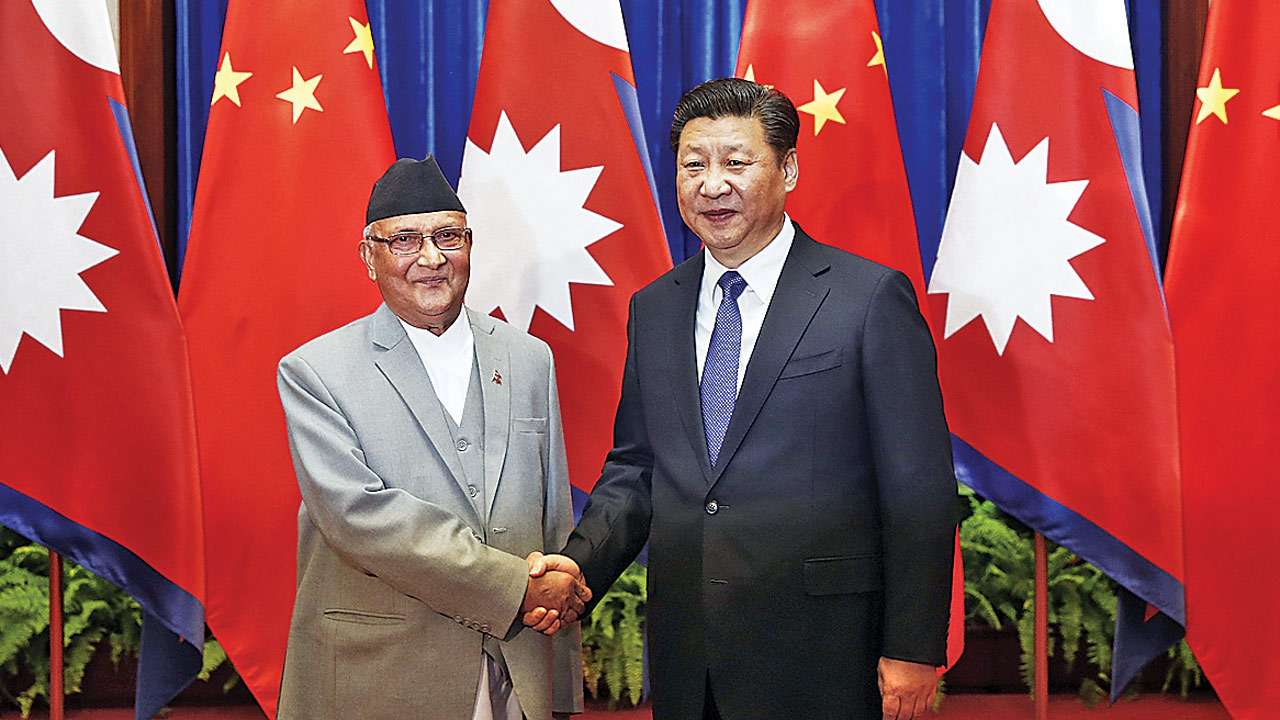
The recent decision by China to allow Nepal to use all its ports for trade is a move that India will be viewed with some concern. According to the agreement inked between Kathmandu and Beijing, Nepal can get access to the facilities at Chinese ports of Tianjin, Shenzen, Lianyungang and Zhanjiang.
Kathmandu has good reason to want to shake off New Delhi’s influence over it. In 2015, India’s tacit support to the Madhesi people who had agitated against the fact that they were not mentioned in the newly promulgated Constitution, by blocking all the crucial entry points on Nepal’s borders with India, had resulted in great resentment against New Delhi in Kathmandu. This along with the need to shake off India’s “big brother” influence has caused Nepali Prime Minister KP Oli to move towards aggressively fostering ties with China. It was precisely in this context that during his visit to China in 2016 that Oli signed some major agreements including a trade and transit agreement, following which he also agreed to join China’s Belt Road Initiative (BRI). Though internal political turmoil did not allow the Oli government to complete its term and successive governments, led by Kamal Dahal ‘Prachanda’ and Sher Bahadur Deuba, did not continue his China Policy, the Oli government has continued to respond to Beijing’s overtures with his return to power. Though he did visit India in April, many felt that the visit was one of politeness and lacked the usual warmth displayed by Nepali leaders when visiting New Delhi.
On the Indian side, Prime Minister Narendra Modi has spared no effort to boost India’s infrastructure with Nepal. Modi announced plans to construct a new electrified rail line, that will connect the border city of Raxaul in India with Kathmandu in Nepal. The two prime ministers also took the decision to develop inland waterways for the movement of cargo, within the framework of trade and transit arrangements, providing additional access to the sea for Nepal.
Such moves were heartening but Oli’s visit to China in June showed him being more effusive about Beijing’s support and cooperation in Nepal’s development. Analysts in Delhi would also note that the two sides signed several agreements which arguably went much further than the India-Nepal agreements.
These included the construction of the Keyrong-Kathmandu railway line, expansion of land and air connectivity, construction of the Koshi, Gandaki and Karnali economic corridors and other projects.
Beijing’s offer of ready cash has helped boost ties. In 2017, Chinese companies announced an investment of $8.3 billion in Nepal. And in the same year, the Chinese Defense Minister and State Councilor General Chang Wanquan visited Kathmandu, offering a grant of US $32.3 million to the Nepalese Army for the purpose of strengthening its capacity to deal with natural calamities. Now, China’s decision to allow Nepal the use of its ports is a godsend. Nepal’s recent decision to not participate in a week-long military exercise of the Bay of Bengal Initiative for Multi-Sectoral Technical and Economic Cooperation in India, while reportedly taking part in a 12-day military exercise with China this month, sums up the situation.
The deepening engagement between Kathmandu and Beijing not only poses security concerns for India but undermines its influence in the neighbourhood. Already, other nations such as the Maldives have begun to assert themselves against what they see as undue Indian influence by returning a helicopter gifted to them by Delhi.
While domestic politics will certainly take centre-stage for the moment, Prime Minister Modi, who has won laurels for his foreign policy so far, needs to think long and hard about this issue. India needs to master the tricky balance of maintaining allies in the neighbourhood while subtly showing them and the world that it is a growing power to be reckoned with. For this, it needs to start by showing Kathmandu and its other neighbours that India too has much to offer in the way of economic initiatives while reminding them of the dangers of getting too close to China. It will not be an easy task.
The writer is Visiting Fellow, National Chengchi University, Taipei. Views are personal.